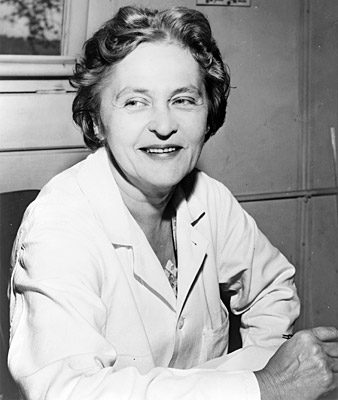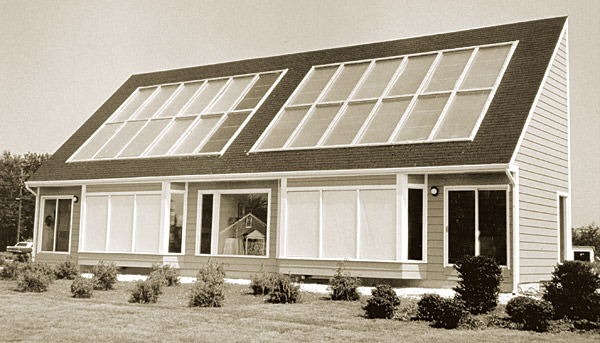


'Sun Queen' shines
UD solar innovator to receive national recognition
11:38 a.m., March 27, 2012--Maria Telkes, a University of Delaware scientist known as the “Sun Queen” for her pioneering solar energy research, will be posthumously inducted into the National Inventors Hall of Fame this May.
Telkes is among 12 inductees, including the late Apple co-founder Steve Jobs, who will be recognized for their world-changing inventions in a ceremony on May 2 in the historic Patent Office Building, now the Smithsonian American Art Museum and the National Portrait Gallery, in Washington, D.C.
Research Stories
Chronic wounds
Prof. Heck's legacy
The inductees’ innovations range from the first statin, which launched a new class of drugs targeted at lowering cholesterol, to solar thermal storage systems – Telkes’ forte.
A news release from the National Inventors Hall of Fame cites Telkes, a Hungarian-American physical chemist and biophysicist, as “a highly respected innovator and a foremost authority in the field of solar energy, widely publishing and inventing on the topic throughout her career. Ultimately retiring from the University of Delaware, Telkes also spent time at MIT, NYU, and in industry.”
In 1972, Telkes joined the research team at the University of Delaware’s Institute of Energy Conversion (IEC), where she developed the heating system for Solar One, UD’s experimental solar-powered house.
Previously, at MIT, Telkes designed the heating system for the first solar-heated home. The Dover Sun House, built in Dover, Mass., in 1948, was a novel “woman-powered” effort, with architect Eleanor Raymond designing the structure, Telkes designing its heating system, and Boston heiress and sculptress Amelia Peabody financing it. The house was constructed on Peabody’s property.
Telkes also developed solar ovens, solar stills for use on land and on life rafts to distill drinking water from seawater, and thermal storage materials that were used in shipping temperature-sensitive instruments used in the Polaris, Minuteman and Apollo programs.
“Maria Telkes was a most valuable member of my team at IEC and contributed significantly to the prestige of our university,” said Karl Böer, Distinguished Professor Emeritus of Physics and Solar Energy, who founded the institute at UD in 1972. “I am especially pleased that she is finally elected to become a member of the Hall of Fame, an honor she has well deserved.”
Telkes designed heat storage and air conditioning systems “that were far ahead of the state of the art at the time,” Böer said.
Telkes developed special salts to capture heat and cold. Scientifically, these salts exploited the heat of fusion, stored when the salts are melted, and released when they solidify. This process is similar to the heat of fusion set free when solid ice melts into liquid water, or is required to freeze water.
Böer said bins of Telkes’ salts in the basement of UD’s Solar One house could store not only the heat harvested from the roof during daylight in winter to warm the home (the salts melted), but also could store the coolness during clear night hours in the summer to provide cooling during a warm day (the salts solidified).
Although Telkes retired from UD in 1978, she remained active as a consultant nearly until her death.
She died in Hungary in 1995, only a few days short of her 95th birthday, “after a remarkably succcessful life in which she contributed so much to solar utilization,” Böer said.
Telkes was the recipient of numerous patents and awards during her lifetime. In 1977, the National Academy of Sciences Building Research Advisory Board honored Telkes for her contributions to solar-heated building technology; previous honorees included Frank Lloyd Wright and Buckminster Fuller.
Editor's note: Material related to Telkes is included in the Karl Wolfgang Böer Papers, which are in Special Collections in the University of Delaware Library. Special Collections staff regularly respond to reference questions from throughout the world about her work.
Article by Tracey Bryant









